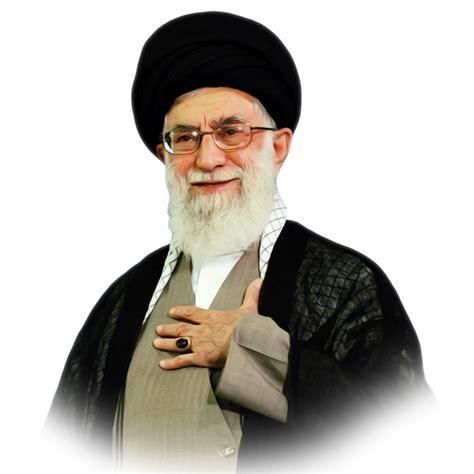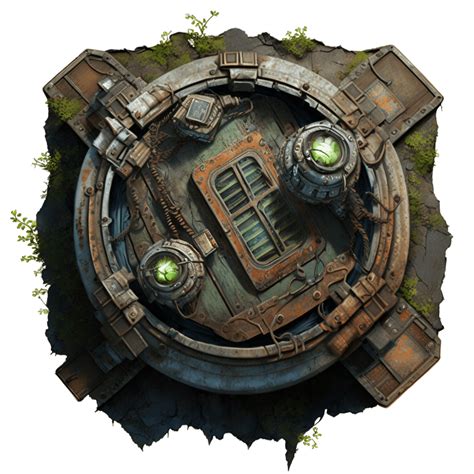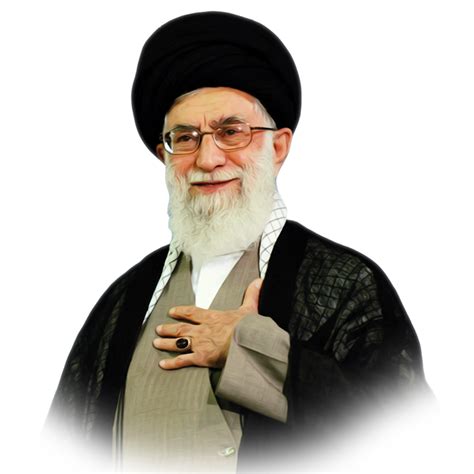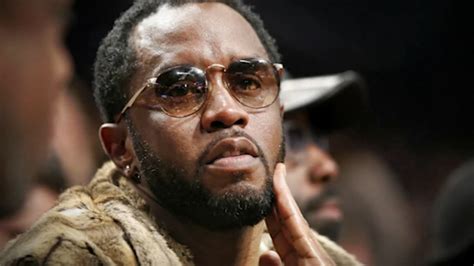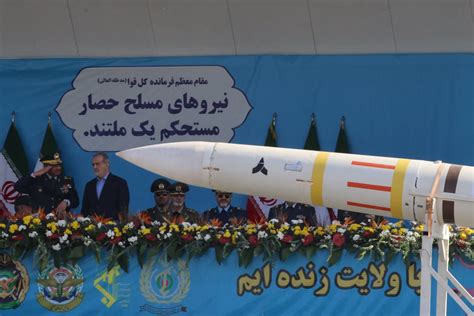
Iran’s Supreme Leader Ayatollah Ali Khamenei faces mounting pressure to revive the 2015 nuclear deal as economic hardship deepens and domestic discontent simmers, raising the question of whether a return to the agreement, despite its perceived flaws, is a necessary evil to alleviate the country’s crises. With negotiations stalled and international scrutiny intensifying, Khamenei’s decision could determine Iran’s future trajectory, balancing economic relief against concerns over national security and political ideology.
Ayatollah Ali Khamenei, Iran’s Supreme Leader, finds himself at a critical juncture as he weighs the potential revival of the 2015 nuclear deal, formally known as the Joint Comprehensive Plan of Action (JCPOA). The pressure on Khamenei has intensified due to a confluence of factors, including a struggling economy, growing internal dissent, and stalled negotiations with world powers. The question now looms large: is the nuclear deal, despite its perceived shortcomings, a necessary evil to navigate Iran out of its current predicament?
For years, Khamenei has maintained a hard-line stance, balancing the nation’s revolutionary ideals with pragmatic needs. However, the current state of affairs presents a challenge of unprecedented magnitude. The Iranian economy has been battered by crippling sanctions imposed by the United States following its withdrawal from the JCPOA in 2018. These sanctions have significantly curtailed Iran’s oil exports, its primary source of revenue, leading to a sharp decline in the country’s GDP, high inflation, and widespread unemployment.
The economic downturn has fueled public discontent, evident in recurring protests and strikes across the country. These demonstrations, often met with a harsh response from the authorities, highlight the growing frustration among Iranians who are struggling to make ends meet. The leadership is acutely aware that prolonged economic hardship could undermine its legitimacy and threaten the stability of the Islamic Republic.
“The economic situation is undoubtedly a major concern for the Iranian leadership,” says a source familiar with Iranian policy circles. “They understand that they need to find a way to alleviate the pressure on the population.”
The nuclear deal, negotiated under the Obama administration, offered Iran significant sanctions relief in exchange for verifiable restrictions on its nuclear program. While the deal was hailed as a landmark achievement in international diplomacy, it faced strong opposition from hardliners in both Iran and the United States. Critics argued that the deal did not go far enough in curbing Iran’s nuclear ambitions and that it failed to address its ballistic missile program and regional activities.
When the Trump administration withdrew from the JCPOA and reimposed sanctions, Iran initially vowed to remain in compliance with the agreement. However, as the economic benefits failed to materialize, Iran gradually rolled back its commitments, enriching uranium to higher levels and developing advanced centrifuges. These actions have raised concerns among world powers about Iran’s intentions and brought the country closer to the threshold of developing a nuclear weapon.
Negotiations to revive the JCPOA began in Vienna in April 2021, with the aim of bringing both Iran and the United States back into compliance with the agreement. However, the talks have been plagued by disagreements over the scope and sequencing of sanctions relief, as well as guarantees that the United States will not withdraw from the deal again in the future.
A major sticking point has been Iran’s demand for the removal of its Islamic Revolutionary Guard Corps (IRGC) from the U.S. list of designated terrorist organizations. The United States has resisted this demand, arguing that the IRGC is responsible for supporting terrorist groups and destabilizing activities in the region.
Despite the challenges, there is a growing recognition within the Iranian leadership that a return to the JCPOA may be the only viable option for alleviating the country’s economic woes. The deal would provide Iran with access to its frozen assets held in foreign banks and allow it to resume oil exports, providing a much-needed boost to the economy.
“The leadership understands that they need to find a way to get the economy back on track,” says a former Iranian official. “The nuclear deal is the most obvious path to doing that.”
However, a return to the JCPOA is not without its risks. Hardliners within the regime are wary of any deal that would require Iran to compromise on its nuclear program or its regional policies. They fear that a return to the JCPOA would be seen as a sign of weakness and would embolden Iran’s enemies.
“There is a strong current of opinion within the regime that believes that Iran should not compromise on its principles,” says a source close to the Iranian leadership. “They believe that Iran should continue to resist U.S. pressure and pursue its own independent path.”
Khamenei must also consider the potential domestic backlash from a return to the JCPOA. Many Iranians are disillusioned with the agreement, believing that it did not deliver the promised economic benefits. They may view a return to the deal as a betrayal of their aspirations for a better future.
“The people are tired of empty promises,” says an Iranian activist. “They want to see real change in their lives.”
Ultimately, Khamenei’s decision on the nuclear deal will be shaped by a complex interplay of factors, including economic necessity, political ideology, and national security considerations. He must weigh the potential benefits of a return to the JCPOA against the risks of compromising on Iran’s principles and alienating his hard-line supporters.
The stakes are high. A failure to revive the JCPOA could lead to further economic hardship, increased social unrest, and a potential escalation of tensions in the region. A return to the deal, on the other hand, could provide Iran with a path to economic recovery and greater stability, but it would also require difficult compromises and a willingness to engage with the international community.
“This is a defining moment for Iran,” says a Western diplomat. “The decisions that Khamenei makes in the coming weeks will have a profound impact on the country’s future.”
The decision is further complicated by the ongoing war in Ukraine, which has disrupted global energy markets and increased the demand for Iranian oil. Some analysts believe that Iran could use its oil reserves as leverage in negotiations with world powers.
“The war in Ukraine has changed the calculus,” says an energy analyst. “Iran now has more leverage than it did before.”
However, other analysts argue that the war in Ukraine has also made it more difficult to reach a deal, as it has deepened the divisions between the West and Russia, one of the key parties to the JCPOA.
“The war in Ukraine has made everything more complicated,” says a political analyst. “It is now much harder to find common ground.”
In addition to the external pressures, Khamenei also faces internal challenges from rival factions within the regime. Some hardliners are pushing for Iran to develop nuclear weapons, arguing that it is the only way to deter its enemies. Others believe that Iran should focus on building its economy and improving its relations with its neighbors.
“There are deep divisions within the regime,” says a source close to the Iranian leadership. “It is not clear which faction will prevail.”
Khamenei’s decision will likely be influenced by his assessment of the balance of power within the regime and his perception of the risks and opportunities facing Iran. He will also need to consider the potential impact of his decision on his legacy.
“Khamenei is very concerned about his legacy,” says a historian of Iran. “He wants to be remembered as the leader who preserved the Islamic Republic.”
The coming weeks will be crucial in determining the future of the JCPOA and the trajectory of Iran. All eyes are on Khamenei as he grapples with one of the most difficult decisions of his long reign. The future of Iran hangs in the balance.
The international community is watching closely, with many hoping that a return to the JCPOA can prevent a nuclear arms race in the Middle East and promote greater stability in the region. However, there is also a recognition that a deal is not guaranteed and that the risks of failure are high.
“We are doing everything we can to revive the JCPOA,” says a senior U.S. official. “But we are also prepared for the possibility that it may not be possible.”
Ultimately, the decision rests with Khamenei. He must decide whether the nuclear deal is a necessary evil or a bridge too far. His decision will shape the future of Iran and the region for years to come. The world waits with bated breath.
The potential collapse of the JCPOA could have far-reaching consequences, including:
- Increased risk of military conflict: Without the JCPOA’s restrictions on Iran’s nuclear program, there is a greater risk that Iran could develop nuclear weapons, which could trigger a regional arms race and increase the risk of military conflict.
- Further economic hardship for Iran: A failure to revive the JCPOA would likely lead to further economic sanctions on Iran, which could exacerbate the country’s economic problems and fuel social unrest.
- Increased regional instability: A more isolated and economically desperate Iran could be more likely to engage in destabilizing activities in the region, such as supporting proxy groups and developing ballistic missiles.
- Damage to international diplomacy: The collapse of the JCPOA would be a blow to international diplomacy and could undermine efforts to resolve other global challenges through negotiation.
The revival of the JCPOA, on the other hand, could offer several benefits, including:
- Reduced risk of nuclear proliferation: The JCPOA would reimpose restrictions on Iran’s nuclear program, making it more difficult for the country to develop nuclear weapons.
- Economic relief for Iran: The JCPOA would provide Iran with access to its frozen assets and allow it to resume oil exports, providing a much-needed boost to the economy.
- Improved regional stability: A more prosperous and stable Iran could be more likely to play a constructive role in the region.
- Strengthened international diplomacy: The revival of the JCPOA would demonstrate the value of international diplomacy and could encourage other countries to resolve their disputes through negotiation.
The decision facing Khamenei is not an easy one. He must weigh the potential benefits and risks of both options and make a decision that he believes is in the best interests of Iran. The world can only wait and see what he decides.
The broader geopolitical context also plays a significant role. The relationship between Iran and Saudi Arabia, for instance, remains strained, with both countries vying for regional influence. Any decision regarding the nuclear deal will undoubtedly impact this dynamic. Furthermore, the evolving relationship between Iran and China, with increasing economic and strategic ties, adds another layer of complexity to the situation.
The internal political landscape within Iran is equally complex. Khamenei must navigate the competing interests of various factions, including hardliners, pragmatists, and reformists. Each group has its own vision for Iran’s future and its own ideas about how to deal with the nuclear issue and the country’s economic challenges.
The role of public opinion cannot be ignored either. While the Iranian government often suppresses dissent, public sentiment can still influence policy decisions. The widespread discontent over the economy and the desire for a better life could push the leadership towards a more pragmatic approach.
Ultimately, Khamenei’s decision will be a reflection of his assessment of the overall situation and his vision for Iran’s future. It will be a decision that will have profound consequences for the country and the region.
The article from Yahoo News highlights the intense pressure that Ayatollah Ali Khamenei is under. The convergence of economic hardship, domestic discontent, and stalled nuclear negotiations presents a complex and precarious situation. His decision on whether to revive the 2015 nuclear deal will not only determine Iran’s trajectory but also significantly impact regional stability and international relations. The question remains: Will Khamenei view the nuclear deal as a “necessary evil” to alleviate Iran’s crises, or will he opt for a different path, risking further isolation and potential conflict?
Frequently Asked Questions (FAQ)
1. What is the JCPOA and why is it important?
The Joint Comprehensive Plan of Action (JCPOA), also known as the Iran nuclear deal, is an agreement reached in 2015 between Iran and the P5+1 (the five permanent members of the United Nations Security Council – China, France, Russia, the United Kingdom, and the United States – plus Germany) and the European Union. Under the agreement, Iran agreed to limit its nuclear program in exchange for relief from economic sanctions. It is important because it aimed to prevent Iran from developing nuclear weapons, thereby reducing the risk of a nuclear arms race in the Middle East. “Under the agreement, Iran agreed to limit its nuclear program in exchange for relief from economic sanctions.”
2. Why did the United States withdraw from the JCPOA?
In 2018, the United States, under the Trump administration, withdrew from the JCPOA. The Trump administration argued that the deal was flawed because it did not permanently prevent Iran from developing nuclear weapons, it did not address Iran’s ballistic missile program, and it did not address Iran’s support for terrorist groups and destabilizing activities in the region. The US then reimposed sanctions on Iran, which severely damaged the Iranian economy. “Critics argued that the deal did not go far enough in curbing Iran’s nuclear ambitions and that it failed to address its ballistic missile program and regional activities.”
3. What are the main obstacles to reviving the JCPOA?
Several obstacles stand in the way of reviving the JCPOA. These include disagreements over the scope and sequencing of sanctions relief, guarantees that the United States will not withdraw from the deal again in the future, and Iran’s demand for the removal of its Islamic Revolutionary Guard Corps (IRGC) from the U.S. list of designated terrorist organizations. These issues have proven difficult to resolve, leading to protracted negotiations. “A major sticking point has been Iran’s demand for the removal of its Islamic Revolutionary Guard Corps (IRGC) from the U.S. list of designated terrorist organizations.”
4. How is Iran’s current economic situation impacting the decision to revive the JCPOA?
Iran’s economy has been severely impacted by U.S. sanctions, leading to high inflation, widespread unemployment, and a decline in living standards. This economic hardship has fueled public discontent and put pressure on the Iranian leadership to find a solution. The revival of the JCPOA is seen as a potential way to alleviate these economic problems by allowing Iran to resume oil exports and access its frozen assets. “These sanctions have significantly curtailed Iran’s oil exports, its primary source of revenue, leading to a sharp decline in the country’s GDP, high inflation, and widespread unemployment.”
5. What are the potential consequences if the JCPOA is not revived?
If the JCPOA is not revived, the potential consequences include an increased risk of military conflict, further economic hardship for Iran, increased regional instability, and damage to international diplomacy. Without the JCPOA’s restrictions, Iran could potentially develop nuclear weapons, which could trigger a regional arms race. Further sanctions could exacerbate Iran’s economic problems and lead to more unrest. A more isolated Iran might engage in destabilizing activities in the region. The failure to revive the JCPOA would also undermine efforts to resolve global challenges through negotiation. “A failure to revive the JCPOA could lead to further economic hardship, increased social unrest, and a potential escalation of tensions in the region.”






